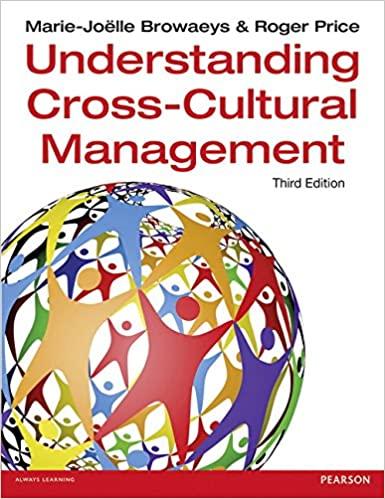I was working in the inspection department of the Central Bank of India and was given an
Question:
I was working in the inspection department of the Central Bank of India and was given an assignment a few years ago to inspect a branch of a private commercial bank. I was assisted by a junior officer. One of our main tasks was to get some important information about a fraud, determine the chain of events, establish accountability and pass on the information to the team which was inspecting the head office of the bank.
The branch was in a small town which was very different to what I was used to: they spoke a different language there, ate different food and enjoyed a very different climate. The people working there were very old compared to employees of other banks I had visited and they behaved towards me in an indifferent and uncooperative manner. They claimed they had no idea how the fraud was committed and were reluctant to show me the relevant records.
Many of the staff members had been working in the branch for decades and had developed close relationships with each other. Their former branch manager had already been suspended for his suspected involvement in the fraud. My colleague, who was from the same region and of a similar age, managed to mix with the staff but was unable to get hold of the information needed. Eventually, he also became rather reluctant to get items of information requested, giving delays and unavailability as reasons for their non-appearance.
I was proud of my experience in inspections, my analytical skills, my management education and my past success in meeting deadlines. I followed the code of behaviour expected of someone in my position and kept the staff at a distance. I declined offers of lunch or even tea or coffee so that these should not be considered as some sort of bribe. I felt that the local staff were making one excuse after another not to come up with the right information. Were they perhaps trying to protect their colleagues, or were they afraid of being reprimanded by their bosses? The information I needed was crucial and could be obtained only from this branch. The days passed, but nothing substantial emerged. Time was running out.
Questions
1. To what extent is the problem presented in the case a communication problem?
2. How do you think the author could try to get hold of the information needed?
Step by Step Answer:

Understanding Cross Cultural Management
ISBN: 9781292015897
3rd Edition
Authors: Marie Joelle Browaeys, Roger Price





